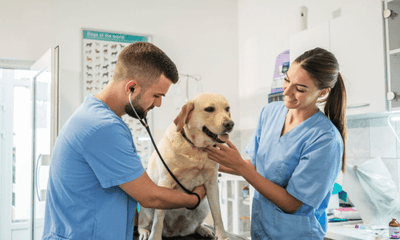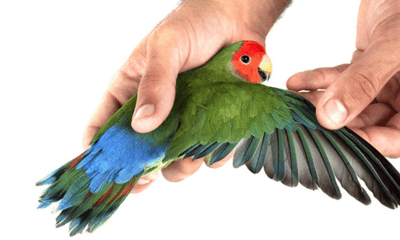Dachshunds are beloved for their long bodies and short legs, but this unique anatomy makes them prone to back problems, particularly Intervertebral Disc Disease (IVDD). Understanding how to protect your Dachshund's spine can help prevent pain, mobility issues, and costly treatments. In this guide, we’ll explore common Dachshund back problems, symptoms to watch for, and the best ways to keep your pup’s spine healthy.
Why Are Dachshunds Prone to Back Problems?
Dachshunds have a disproportionate body-to-leg ratio, which places extra strain on their spine. About 25% of Dachshunds develop IVDD, a condition where spinal discs degenerate and may rupture, leading to pain and paralysis. This genetic predisposition makes spinal care essential for every Dachshund owner.
Signs of Back Problems in Dachshunds
Early detection of spinal issues can prevent severe complications. The following could be symptoms of a spinal issue:
-
Reluctancy to jump or climb stairs
-
Yelping or showing signs of pain when picked up
-
Hunched back
-
Difficulty walking
-
Weakness in the hind legs
-
Losing bladder or bowel control
-
Sudden paralysis
If your dachshund is showing any of these signs, it’s essential to seek veterinary attention immediately.
How to Protect Your Dachshund’s Spine
Preventing back problems involves proper care, exercise, and lifestyle adjustments. Maintaining a healthy weight is crucial, as excess weight puts unnecessary strain on your Dachshund’s spine. Feeding a balanced diet with portion control and high-quality dog food helps prevent obesity and reduces the risk of spinal issues.
For Dachshunds needing weight management, Hill's Science Diet Adult Perfect Weight is a great option. This food provides breakthrough nutrition formulated to help your dog achieve and maintain a healthy weight while supporting lean muscle maintenance. It delivers clinically proven results in just 10 weeks, making it an excellent choice for Dachshunds who need to shed a few pounds or maintain their ideal weight.
For overall Dachshund health, Royal Canin Dachshund is specifically designed to meet the breed’s unique nutritional needs. It supports bone and joint health, reduces stool odor and volume, and has an adapted calorie content to prevent excess weight gain. The exclusive kibble size, shape, and texture are made to suit a Dachshund’s jaw, and it includes L-carnitine and an optimal protein content to help maintain lean muscle mass. Choosing the right food tailored to your Dachshund’s needs can make a significant difference in their overall health and spinal well-being.
Jumping from furniture or climbing stairs can increase stress on the spine. To minimize these risks, use dog ramps for couches, beds, and cars, train your Dachshund not to jump, and block off stairs with pet gates. When picking up your Dachshund, always support their chest and hindquarters to distribute weight evenly and prevent spinal strain.
Regular, low-impact exercise strengthens your Dachshund’s muscles and supports spinal health. Short, controlled walks, swimming, and interactive play that avoids jumping are ideal activities. Investing in an orthopaedic dog bed can also help reduce pressure on your Dachshund’s spine and joints, promoting better posture and comfort.
Routine veterinary check-ups are essential for catching early signs of IVDD and other back issues. Your vet may recommend preventive supplements like glucosamine and omega-3s, physical therapy options, or pain management strategies if early symptoms appear. Using a no-pull harness instead of a collar can prevent unnecessary strain on your Dachshund’s neck and back, ensuring even weight distribution during walks.
Treatment Options for Dachshund Back Problems
If your Dachshund develops IVDD or another spinal condition, treatment options may include medication such as anti-inflammatory drugs and pain relief, crate rest for several weeks to allow healing, physical therapy including rehabilitation exercises, acupuncture, or laser therapy, and in severe cases, surgery to relieve pressure on the spine.
Dachshunds are prone to back problems, but with proper care and prevention, you can significantly reduce the risk. By maintaining a healthy weight, avoiding excessive jumping, providing support, and ensuring regular vet check-ups, you’ll help keep your Dachshund’s spine strong and pain-free. If you notice any signs of discomfort, seek veterinary care promptly to ensure the best outcome for your beloved pup.






